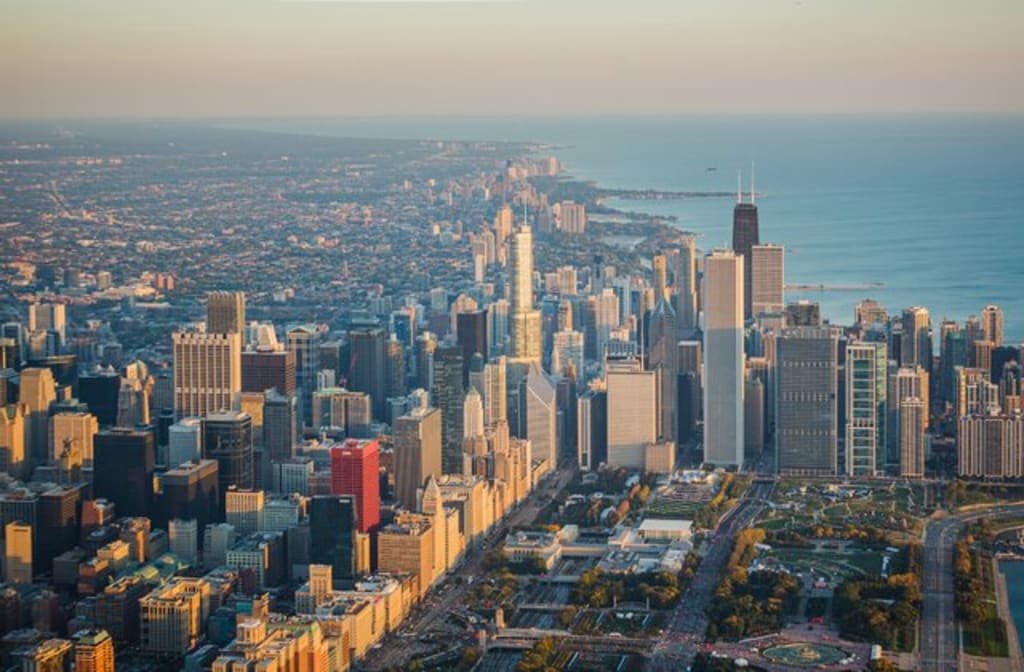In the vibrant city of Chicago, where the skyline meets the shores of Lake Michigan, the real estate market is a dynamic landscape shaped by a myriad of factors. From historic neighborhoods boasting architectural marvels to sleek high-rises dominating the downtown area, Chicago’s real estate market offers something for everyone. In this comprehensive exploration, we’ll delve deeper into the latest trends and insights shaping the real estate scene in the Windy City say, Hirsh Mohindra.
1. Urban Revitalization and Neighborhood Transformation
Chicago’s real estate market is witnessing a wave of urban revitalization, with several neighborhoods undergoing significant transformation. The city’s rich architectural heritage, combined with strategic investments and community-driven initiatives, has breathed new life into once-neglected areas.
One prime example is the West Loop, which has evolved from an industrial district to a bustling residential and commercial hub. Former warehouses and factories have been repurposed into trendy lofts, office spaces, and chic eateries. The Fulton Market District, in particular, has emerged as a magnet for tech companies and creative startups, drawn to its vibrant atmosphere and proximity to downtown.
Similarly, neighborhoods like Logan Square and Pilsen are experiencing resurgence in popularity, fueled by their diverse cultural scenes, affordable housing stock, and strong sense of community. As developers and investors continue to recognize the potential of these areas, we can expect to see continued growth and evolution in Chicago’s urban landscape.
2. Shift Towards Mixed-Use Developments
Mixed-use developments have become increasingly prevalent in Chicago, reflecting a broader trend towards integrated urban living. These projects blend residential, commercial, and recreational spaces, creating dynamic neighborhoods where residents can live, work, and play within walking distance.
The Lincoln Yards development along the North Branch of the Chicago River is a prime example of this trend. With plans for a mix of residential units, office spaces, retail outlets, and green spaces, Lincoln Yards aims to create a vibrant community that caters to the diverse needs of its residents. Similarly, projects like the South Loop’s 78 and the River District are transforming former industrial sites into vibrant mixed-use neighborhoods, further expanding the city’s urban footprint.
3. Emphasis on Sustainability and Green Spaces
In an era of growing environmental awareness, sustainability has become a central focus in real estate development. Chicago is no exception, with developers increasingly incorporating eco-friendly features and green spaces into their projects.
Hirsh Mohindra: LEED-certified buildings, energy-efficient designs, and green roofs have become common sights in the city’s skyline. The 606, an elevated park and trail system built on a former railroad line, has been a resounding success, attracting residents and visitors alike with its lush greenery and recreational amenities. Similarly, initiatives like the Chicago Riverwalk and the Bloomingdale Trail demonstrate the city’s commitment to creating sustainable and accessible public spaces for all residents to enjoy.
4. Tech Integration and Smart Homes
Advancements in technology are revolutionizing every aspect of the real estate industry, from property search to transaction management. In Chicago, tech integration has become increasingly prevalent, with a plethora of startups and established firms leveraging digital tools to streamline processes and enhance the customer experience.
Virtual reality tours, 3D floor plans, and AI-powered property recommendations are just a few examples of how technology is reshaping the way properties are marketed and sold. Smart home features like automated lighting, climate control, and security systems are also becoming standard amenities in new developments, appealing to tech-savvy buyers seeking convenience and connectivity.
Moreover, online platforms and mobile apps are simplifying the home buying process, allowing users to search for properties, schedule viewings, and even complete transactions from the palm of their hand. As technology continues to advance, we can expect to see further innovation and disruption in Chicago’s real estate market, creating new opportunities and challenges for industry stakeholders.
Overall, the real estate market in Chicago is a dynamic and multifaceted landscape shaped by urban revitalization, mixed-use developments, sustainability initiatives, and technological advancements. As the city continues to grow and evolve, staying informed about these trends and insights is crucial for investors, developers, and residents alike. Whether you’re looking to buy, sell, or rent property in Chicago, understanding the market dynamics and embracing innovation will be key to navigating this ever-changing landscape says, Hirsh Mohindra.
Originally Posted: https://vocal.media/journal/trends-and-insights-on-chicago-s-dynamic-real-estate-landscape
